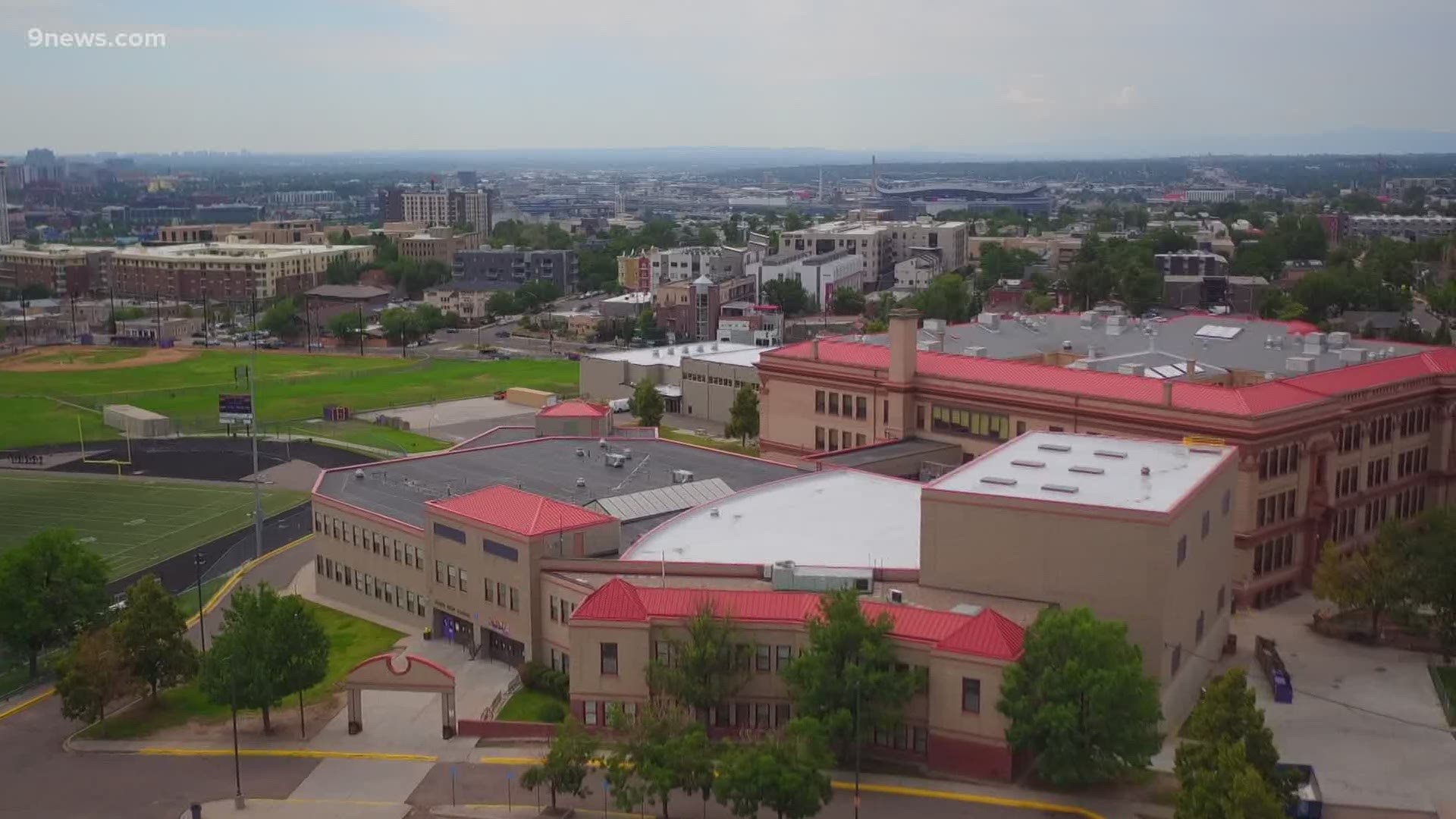DENVER — After initially announcing plans to bring all students back for full-time, in-person learning, Denver Public Schools Superintendent Susana Cordova had to switch gears.
Now, all students kindergarten through twelfth grade will start the school year on Aug. 24 with remote learning and may begin in-person learning on Sept. 8 or later depending on COVID-19 developments.
9NEWS interviewed Superintendent Cordova to talk about dealing with the pandemic.
Editor's note: Responses have been edited for context and clarity.
9NEWS: Why delay in-person learning for two weeks? What does two weeks get you? Is two weeks enough time?
Cordova: The infection rate of COVID-19 here in Denver was in the low 2% range. As we were getting closer to the start of school, we could see those numbers moving up. We could see some of the challenges that we were potentially gonna be grappling with. The Department of Education hadn’t yet released any guidance on the start of school and it felt like it was not possible for us to say that we were gonna stick with what we had announced in June.
The logistics of a safe return to in-person learning are really complicated and I don't want to pretend like they're not. Our team members, our principals and their leadership teams are working right now on what a safe return to in-person learning would look like.
We want to make sure that we're doing what's in the best interest of everyone.
If we need to extend (remote learning) for longer, that's something we will definitely consider.
Once in-person learning starts, do you feel that everything will be in place to keep everyone safe?
Cordova: We definitely know it's going to be critically important that we're all following the health protocols, that everybody is doing a health check before they come to school or they come to work.
If you have a fever, if you have multiple symptoms, we're going to ask you to stay home. If those symptoms are COVID-related, we're going to ask you to get checked as quickly, as soon as possible and to stay out until you have confirmation that you don't have COVID. It's going to be really important for everybody.
We're asking everyone to wear a mask. If parents are concerned about their children wearing a mask all day, we're asking them to consider the virtual option.
We're limiting the kind of contact adults will have with other adults. So, meetings for adults will be virtual so we can really prioritize the support we know that kids need.
We'll have small groups of students who stay together. We will have limited numbers of adults who are coming in.
Our hope is that we can create really clean, disinfected safe spaces for in-person learning. We know no system is completely fool-proof,
We do anticipate that there might be times when there are cases of COVID and we need to quarantine a classroom. It's part of the reason why really want to stress the importance of high-quality, virtual learning.
The best-laid plans we understand can go the wrong direction, that's part of the reason why we are really committed to a slow, gradual start so that we can learn the health and safety checks, everybody can get used to the new normal.
If remote learning extends deeper into the fall semester, how are you going to improve it compared to the spring? How can you keep kids from disappearing from remote learning as many did in the spring?
Cordova: Last spring, I want to really do a shout out to the entire Denver community. Everybody stepped up, but it was really more like crisis schooling. Our virtual program for this year, we've learned a lot of lessons, and we want to make sure it's a really strong option for families that select the 100% virtual option with regular school times, regular live classes, assignments that are graded, grades for coursework, feedback on a regular basis -- all of the things that we know help kids thrive.
I think the good news is, you know for much of last spring, we were under the Stay-at-Home order and it's a lot harder to be able to think about how to do outreach to students. Now, under Safer-at-Home, we can actually do things like if we can't find, locate kids who are not checking in, we can do a home visit. We can do a safely socially-distanced home visit to find out what's going on and make sure kids have the resources they need to check-in.
Will you take it personally if someone died after contracting COVID-19 in a school during in-person learning?
Cordova: I think any time we have staff members or students who pass away. It's really hard not to take it personally. We have that happen every year. There are lots of things that happen in our schools every year.
It always feels really personal. It's personal to our families. It feels personal to our schools It feels personal to me.
My goal is to make sure that we are doing everything that we can to create safe protocols for the students and families who want to be in school and who can safely be in school.
SUGGESTED VIDEOS: COVID-19 Coronavirus

